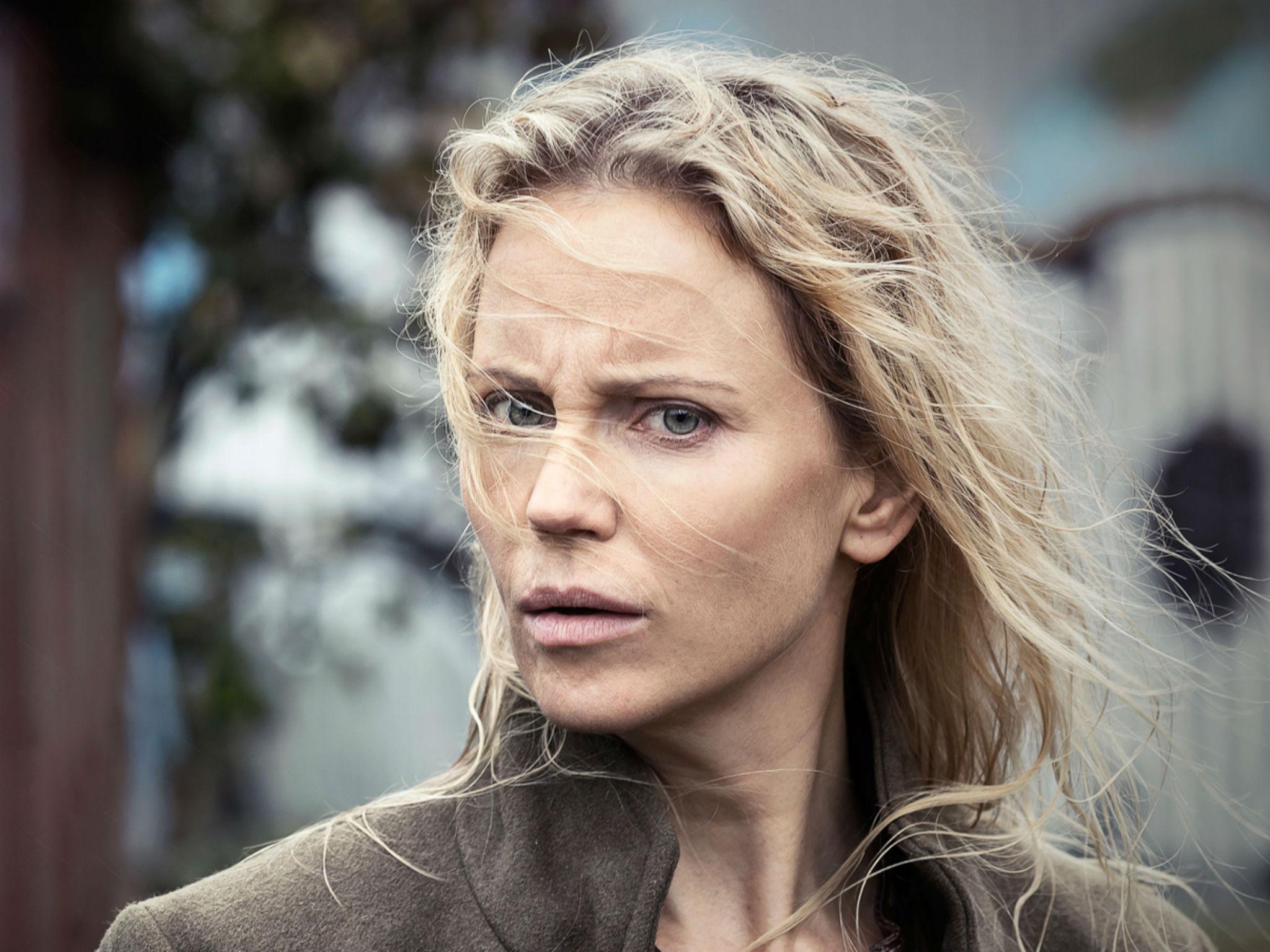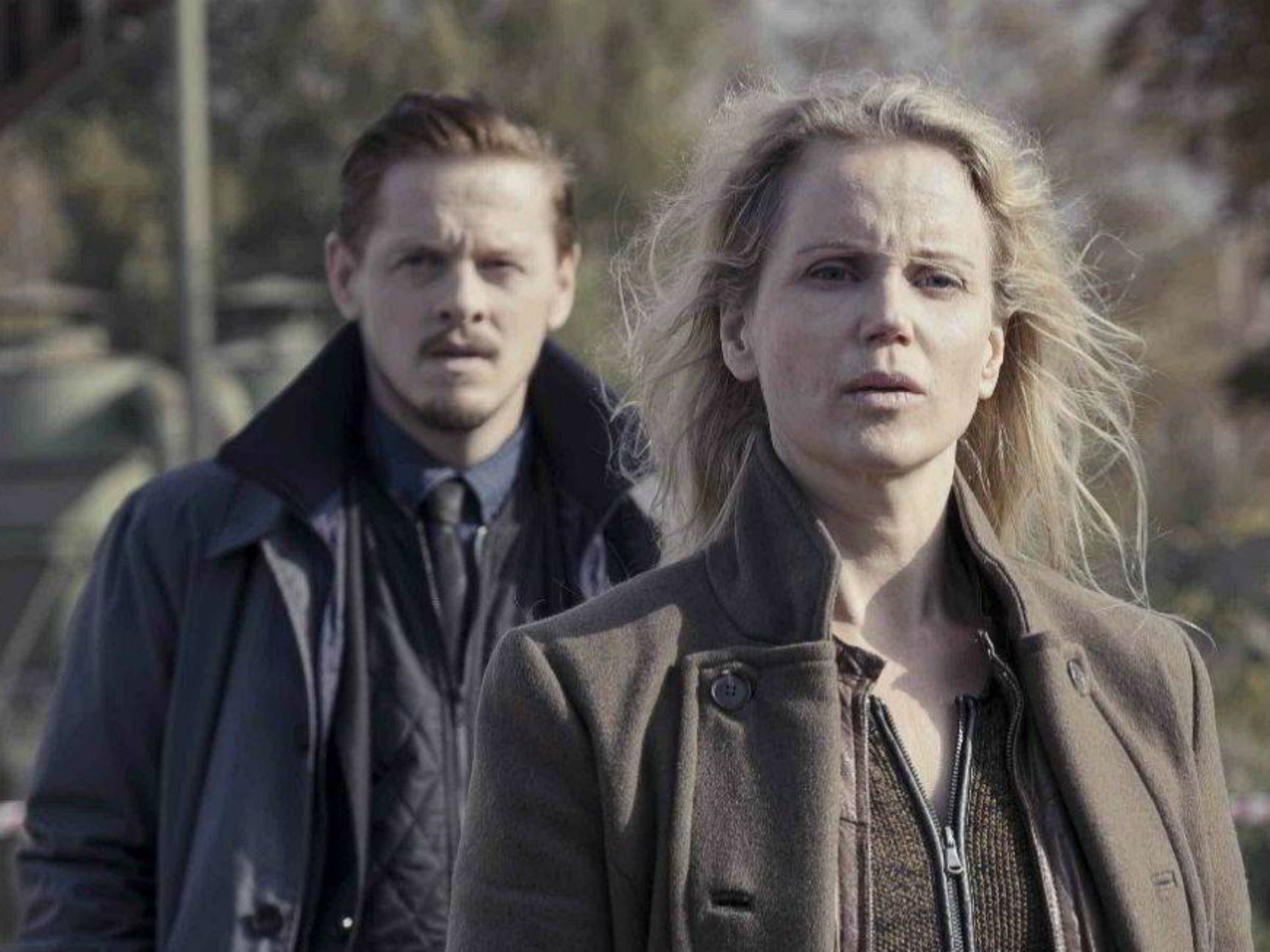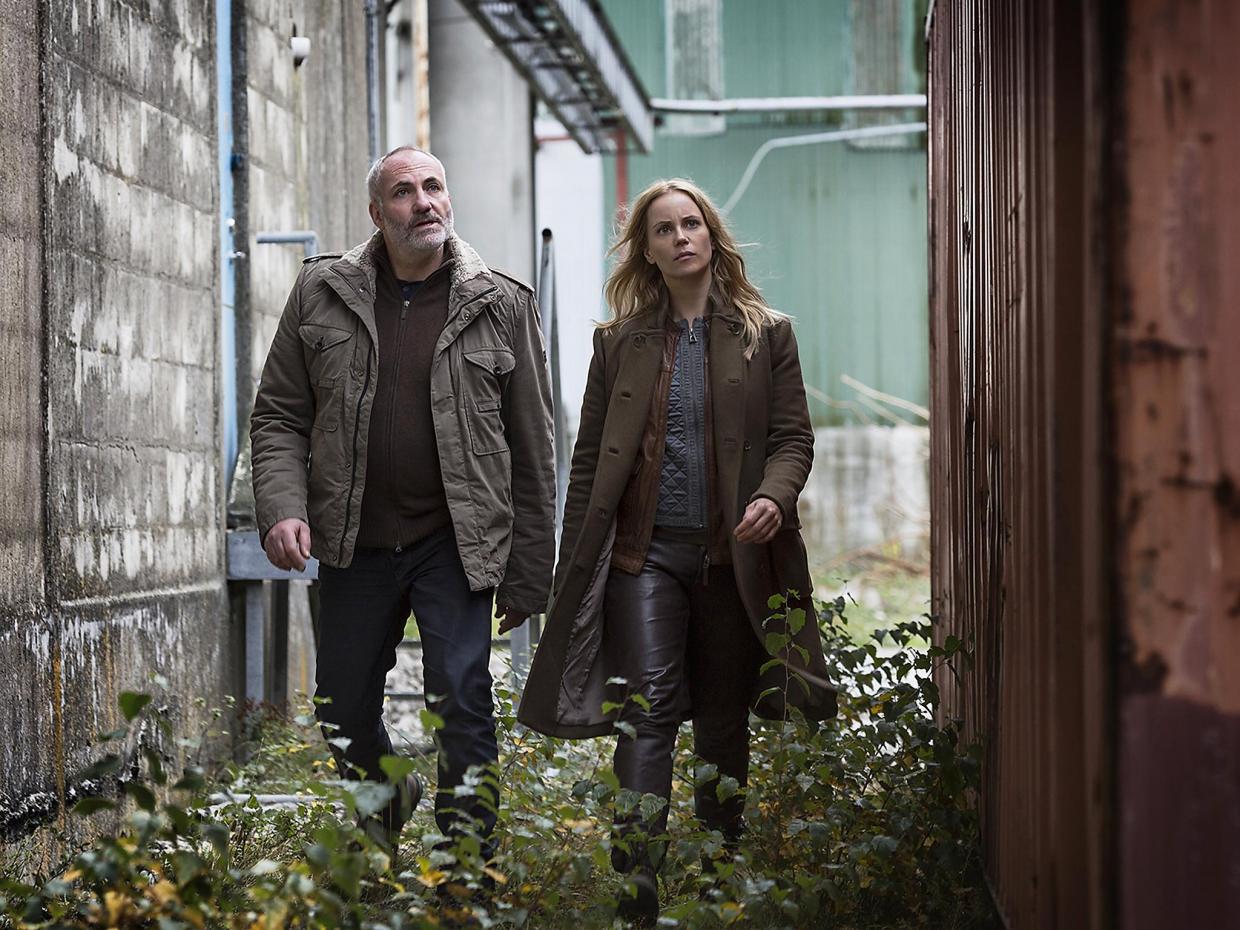The Bridge's Sofia Helin: 'I always found people like Saga Noren rude and unpleasant before I played her'
Helin and co-star Thure Lindhardt discuss leaving behind their characters as the Nordic drama returns for its final eight episodes

Your support helps us to tell the story
From reproductive rights to climate change to Big Tech, The Independent is on the ground when the story is developing. Whether it's investigating the financials of Elon Musk's pro-Trump PAC or producing our latest documentary, 'The A Word', which shines a light on the American women fighting for reproductive rights, we know how important it is to parse out the facts from the messaging.
At such a critical moment in US history, we need reporters on the ground. Your donation allows us to keep sending journalists to speak to both sides of the story.
The Independent is trusted by Americans across the entire political spectrum. And unlike many other quality news outlets, we choose not to lock Americans out of our reporting and analysis with paywalls. We believe quality journalism should be available to everyone, paid for by those who can afford it.
Your support makes all the difference.Imagining Nordic drama The Bridge without Sofia Helin in the lead role of straight-talking detective Saga Noren is inconceivable. Yet the role very nearly didn’t materialise for her.
“I was very sceptical to begin with,” the Swedish actor explains. “You know what I thought? ‘OK, Lisbeth Salander has made a success and now they want another – boring!’ Then I talked to [series creator] Hans [Rosenfeldt] and realised they had a different image of her. I didn’t see the show as something that would be big so I jumped in just to see what happened.”
The Bridge – a co-production between Denmark and Sweden – would go on to become one of the most successful Scandinavian imports of all time. By the end of its first season in 2011, the series had found an audience in over 170 countries amassing impressive views of over one million on UK channel BBC4. It even spawned three remakes, the British version of which – The Tunnel – transposed the action from the Oresund Bridge to the Channel Tunnel.
This week, the series returns to BBC2 for its eight-episode swansong that’ll unite Saga and co-detective Henrik (Thure Lindhardt) for one final case. According to Helin, the series is a symbol of “two countries working together wanting to show each other our best”. In this way, The Bridge was never defined by its gritty noir genre but by her Swedish detective and the flawed Danish male counterpart she finds herself solving crime alongside.
Then there’s the character’s Asperger syndrome, which, while never explicitly mentioned in the series, is raised several times by Helin. Saga’s inability to act in socially conventional manners infused what could have been just another crime series with a fresh spin thanks to the sensitively handled writing by Rosenfeldt – who went on to create ITV drama Marcella – and original director Charlotte Sieling; she is the kind of character likely to feign laughter in response to an awful joke or to ask a stranger about their sex habits for small talk.
Consequently, Saga became beloved by TV viewers across the globe. Lindhardt cites not just the character but the position of authority she finds herself in as a key factor in the show’s success.
“Normally these two would be on the bottom of society – Saga with her lack of communication skills, Henrik with his trauma; people would not know how to deal with it. But watching characters that are awkward, overcoming their own obstacles and finding some of the hardest criminals in the world is interesting. We like watching losers win because we’re all basically losers.”
Lindhardt replaced original male star Kim Bodnia (Martin Rohde) for the third series, his character Henrik assimilating himself into proceedings with immediate effect. The trauma he speaks of is the unsolved case of his missing family. The last we saw of Henrik, he had enlisted the services of Saga to help find his two missing children after learning of his wife’s death.
Following in the footsteps of Bodnia – who is thought to have departed having disliked the direction his character went in the second series – was no small task, something Lindhardt says did not scare him at all. It was the effectively captured partnership of the two characters which dispelled concerns.

Watch Apple TV+ free for 7 days
New subscribers only. £8.99/mo. after free trial. Plan auto-renews until cancelled

Watch Apple TV+ free for 7 days
New subscribers only. £8.99/mo. after free trial. Plan auto-renews until cancelled
“The writers came up with a really f***ed-up person that could benefit with how f***ed-up Saga is,” Helin says.
Lindhadrt agrees: “I think that’s what creates an interesting dynamic – they actually do need each other.”
Not all characters respond so well to Saga’s direct personality. Save for co-worker Rasmus (Henrik Lundstrom) who finds her unprofessional, it’s interestingly the males (Martin, Henrik and Dan Malmberg’s paternal police chief Hans) that all provide support for her. It’s the female characters who take several episodes to warm to Saga. Helin nods in agreement.
“Before I played Saga, I always found people like her rude and unpleasant,” she admits. “Now I can understand.”
Lindhardt interjects: “Women more than men?”
“Yeah, actually,” she responds after a pause. “That’s very bad thinking of me. I didn’t know better. I think, in general, women are immediately collecting, trying to confirm things with one another; that’s how we do it. It’s knowing we’re in the same community. So when a woman doesn’t respond to that…”

Series four begins two years on with Saga wrongly imprisoned for the murder of her mother (Helin tells me her character originally enjoyed being behind bars before she successfully vetoed it from the script). Having been introduced as an impenetrable force, her condition has paved the way for an unravelling of sorts throughout; only in the penultimate scene of the series three finale do we see the character break down and shed tears.
“Saga can never learn this social game,” Helin says. “But finding Henrik makes her feel secure to open up and that’s what she’s doing this season. She’s cracking a little bit.”
But, crucially, viewers have never been in danger of disliking her, something Helin attributes to a particular way in which she decided to play the character early on.
“I always had the goal for Saga to find love, right from the beginning. That’s my only answer as to why people like her. I think it’s something people can relate to even if she’s not conscious of wanting it.”
Lindhardt wades in: “If it was power, we wouldn’t like her.”
Another character deserving of mention alongside the central duo is the structure which gives the show its title. Running between Sweden and Denmark, the five-mile Oresund Bridge is a constant reminder of the co-production behind the series’ development, the characters splitting their time between Copenhagen crime scenes and the police station in Sweden’s Malmo. “We should build more bridges,” Lindhardt exclaims, optimistically. “There’s your headline,” he laughs. “Let’s build more bridges!”

An obstacle was presented in 2015 when the refugee crisis “tore [production] apart” as Sweden enacted a rule which saw those crossing the bridge forced to show IDs after an influx of 160,000 sought asylum in the country – something Helin ruefully describes as “a symbol of the way the world is progressing”.
Whichever way it all goes down, the world is going to have to do without one of television’s most formative female characters. But while the Nordic series may be drawing to a close, it doesn’t mean it’s the end of Saga Noren – not for Helin, at least.
“I remember when I took off the coat [for the final time], I was alone in my trailer and did it quite slowly so I was aware of doing it,” she recalls. “But people ask me if I’ll miss my character and I couldn’t because I can say hello to her any time.” She turns to Lindhardt. “If you ever want to call Saga, feel free.”
‘The Bridge’ starts on BBC2 on Friday 11 May at 9pm, all previous series are available on iPlayer now. Sofia is also supporting WaterAid’s Water Effect campaign; wateraid.org
Follow Independent Culture on Facebook
Join our commenting forum
Join thought-provoking conversations, follow other Independent readers and see their replies
Comments